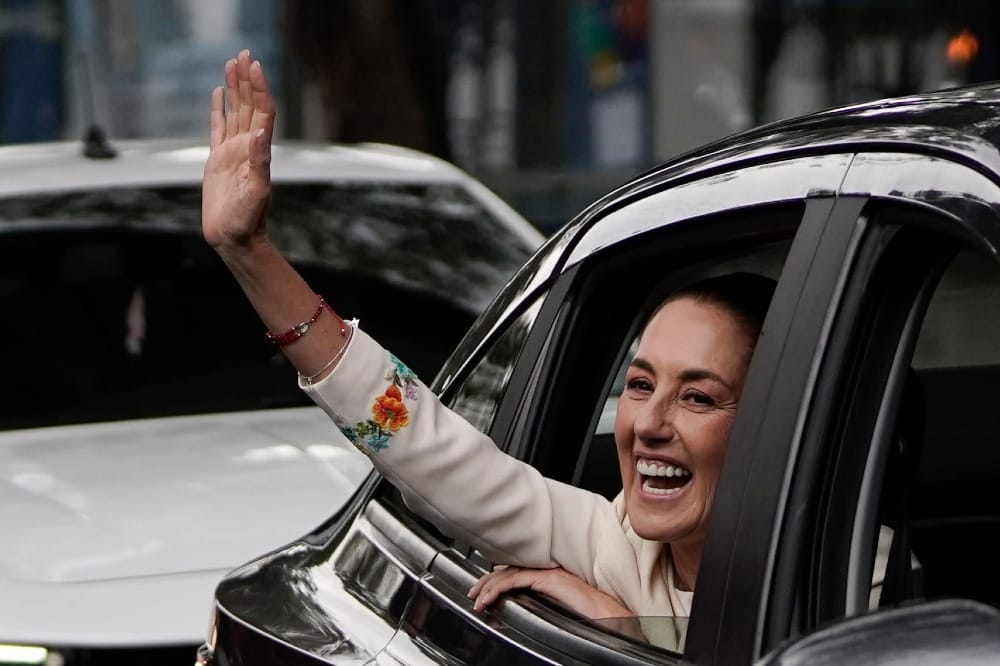How Do Feminists Feel About Mexico's New President? It's Complicated.
Is Mexico's new president good for women? It depends who you ask.

The Persistent is available as a newsletter. Sign up here to get it delivered to your inbox.
Mexico has a new president. Or, I should say, a presidenta.
At her inauguration this week, Claudia Sheinbaum, who won the country's election in a landslide in June, made history as the first woman to take the role in over 200 years of Mexico’s independence.
On Tuesday, she took the oath in the Chamber of Deputies in Congress.
Around her: Hundreds shouting, “Presidenta!”
Behind her: Soldiers, all women.
For those watching—and I’d imagine for women in particular—it was a moment.
Suddenly the invisible were seen, praised and sung: Indigenous women, domestic workers, anonymous heroines, the mothers, sisters, daughters, aunts…all referenced in her speech.
“This marks the arrival of all those who dreamed of the possibility that, one day, it wouldn’t matter if we were born a woman or man, that we could realize our dreams and desires, without our sex determining our destiny!”
“I had a lump in my throat,” said Pamela Cerdeira, a journalist, and the co-founder of the women-led opinion site, Opinión 51.
And yet.
Mexico now has a female head of state in a country in which it’s still very hard to be a woman: where women were not given the right to vote until the 1950s, where femicides and violence against women are an appalling fact of everyday life. There were 848 femicides in Mexico 2023, according to UN Women, and that’s just those that were categorized as femicides.
Feminists have argued that Sheinbaum is not one of them: They have criticized her aggressive handling of feminist protests during her time as mayor of Mexico City, and denounced her MORENA party, created by Sheinbaum’s mentor and predecessor, President Andrés Manuel López Obrador, for downplaying the country’s femicides.
And yet.
We’re talking about a country that has adopted (for what it’s worth) a feminist foreign policy. And that has achieved gender parity in its Congress (which is more than we can say for most others). And where close to half the states in the country now have a female governor, following the elections in June.
So what are we to make of it all?
I asked Mexico-City-based Cerdeira for her take on Sheinbaum and whether Mexico's future will be a feminist one. The answer, as with most things, is complicated. Our conversation has been condensed and edited for clarity.





